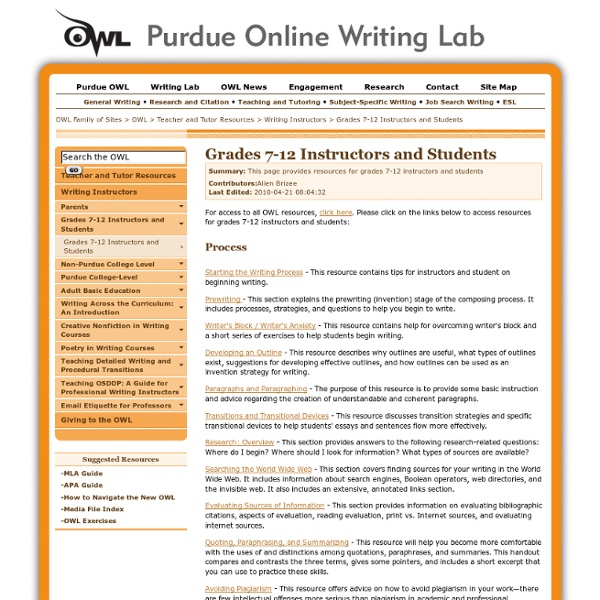



Novels to Know: Middle School Edition As part of our preparation for Common Core standards our district asked the librarians to put together a list of noteworthy novels that would help meet the higher standards for text complexity and reading level. My two middle grade partners, Monique German and Kristen Hearne, and I will be putting together the list for our level. Priority number one for me was to become as much of an expert on Common Core as I can so I have been spending time learning the details of our new standards. If you haven't read the details on how texts are evaluated I highly suggest reading Appendix A of the standards document. There are three considerations when evaluating text: quantitative, qualitative, reader and task. Quantitative can be measured with Lexile or a similar tool. To look at a diagram comparing current Lexile bands by grade and the "stretch" bands for Common Core visit the Lexile site. This list does not impress me. I have been deliberately choosing books lately with this in mind.
UDL Editions by CAST Writing Objectives Using Bloom's Taxonomy | Center for Teaching & Learning Various researchers have summarized how to use Bloom’s Taxonomy. Following are four interpretations that you can use as guides in helping to write objectives using Bloom’s Taxonomy. From: KC Metro [old link, no longer functioning?] Bloom’s Taxonomy divides the way people learn into three domains. From: UMUC From: Stewards Task Oriented Question Construction Wheel Based on Bloom’s Taxonomy Task Oriented Question Construction Wheel Based on Bloom’s Taxonomy. ©2001 St. From: GA Tech According to Benjamin Bloom, and his colleagues, there are six levels of cognition: Knowledge: rote memorization, recognition, or recall of facts Comprehension: understanding what the facts mean Application: correct use of the facts, rules, or ideas Analysis: breaking down information into component parts Synthesis: combination of facts, ideas, or information to make a new whole Evaluation: judging or forming an opinion about the information or situation
Fountas & Pinnell The Common Core Standards for Language and Literacy and The Continuum of Literacy Learning, Grades PreK–8: A Guide to Teaching There is a strong relationship between the new Common Core Standards for Language and Literacy and Fountas and Pinnell’s The Continuum of Literacy Learning. The goal of both documents is to ensure that all students are college-/and career-ready literate no later than the end of high school. Click on the links below to review: © Copyright 2010. The Common Core State Standards for English Language Arts and Fountas & Pinnell LLI System Test Preparation The Common Core State Standards align with Test Preparation items in the Fountas & Pinnell LLI Intermediate Systems. State Specific Resources Prekindergarten State Specific Standards for Language and Literacy and The Continuum of Literacy Learning, Grades PreK-8: A Guide to Teaching The Continuum of Literacy Learning, PreK can also be found in Literacy Beginnings: A Prekindergarten Handbook
WritingFix: prompts, lessons, and resources for writing classrooms Common-Core Writers Craft Curriculum Criteria Published Online: July 22, 2011 New guidelines on crafting curriculum materials for the common standards in English/language arts are reigniting debate about how to ensure a marketplace of good instructional materials for the new standards without crossing the line into telling teachers how to teach. The focal point of the conversations is a set of “publishers’ criteria” issued recently by the two lead writers of the English/language arts section of the common standards, which have been adopted by all but five states. Working under a contract with the Bill & Melinda Gates Foundation, an avid backer of the standards, David Coleman and Susan Pimentel wrote a pair of documents highlighting the key ideas of the standards and describing the qualities of instructional materials they consider a faithful reflection of them. The criteria center on aspects of the standards that represent a significant shift. . The impetus behind the criteria, Ms. Validating Materials Teacher Training Linda P. Mr. Mr.
You Are Your Words - AHD Common Core Video Series Education Commissioner John King, David Coleman and Kate Gerson explain every key aspect of Common Core standards in depth. By viewing this 15-part series, New York educators and administrators will learn step-by-step how to implement the Common Core for ELA/Literacy and Math in their schools and classrooms. You’ll also gain a deeper understanding of the rationale behind the Common Core and what it will mean for students across our state. Produced in partnership with NYS PBS stations WCNY/Syracuse and WNET/New York City, the series illuminates the Common Core through conversations between Commissioner King, a former high school social studies teacher and middle school principal; Coleman, a contributing author of the Common Core State Standards; and Gerson, a Senior Fellow with the USNY Regents Research Fund and a former high school English teacher and principal. Viewing the Videos The Common Core videos can be viewed online or downloaded from the links below for offline viewing.
Are We Really Still Assigning Book Reports? 20 Ways to Encourage Students to Interact with Texts Traditional book reports should be a thing of the past. I mean, do you really want to read 30-125 recaps of the same book? (YAWN!) Well, guess what, your students don't want to write them either. They are boring and tedious. And most importantly, they really don't measure the comprehension of a text or confirm that they have even read the text assigned. Don't just have your students report on what they are reading. Technology-Enhanced Book Interactions With all the free technology available today, why not give students some interesting choices to use in their textual interpretation? 1. 2. 3. 4. 5. 6. 7. 8. Creative and Critical Thinking Book Interactions (No Tech Necessary) What if your students just don't have enough access to technology to make assignments like these feasible? 1. 2. 3. 4. 5. 6. 7. 8. 9. 10. 11. 12. So, there you have it.